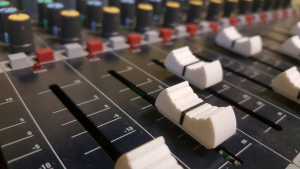Vocals are one of the most challenging styles of music to learn. This is because the voice is used not just to create harmonies but also to create new sounds and perform solos and melodies. In this article, we will go over the most common vocal mistakes and how to fix them so that you can make your voice sound great!
We all know how important it is for singers to sound good. In fact, recording a song is one of the most important steps in a singer’s career. Many people, however, don’t realise that once you’ve recorded a rough demo, if the recorded vocals don’t sound professional, you will have a hard time getting a record deal.
There are many things to consider when recording a vocal; for example, the microphone and the microphone environment play a large role. You might be able to get away with some of the techniques here, but don’t expect to get the same result every time.
Basic tips to get professional-sounding vocals
One of the most important things you can do to get a professional-sounding vocal is to warm up your voice first. Beginners in the field of singing usually wonder how does the voice work, and how professional singers can switch between scales and pitches so easily. Well, it is the amount of practice and warming up of vocal cords. Understanding this is crucial to this process, as it involves the physical mechanism of your vocal cords and how they produce sound. If you want your vocals to be loud and powerful, you will first need to stretch your vocal chords to full capacity. This is where learning variations of vocal exercises becomes beneficial, as it allows you to explore different ranges and dynamics of your voice, enhancing both flexibility and strength. The more you practice these techniques, the better your voice will be, which means you’ll be able to record with more confidence and have more control over your sound.
As a singer, you need to have a good voice, but, like anything else, too much of a good thing can be bad. The perfect voice requires hours of practice and no guarantee of success. You could spend your life practicing, but odds are you’ll never sound like a professional recording artist.
Whether you’re singing in a band, in a choir, or even in the shower, the quality of the vocal track plays a crucial role in the overall sound of the music. It will likely sound amateurish and empty if a song is dry, sloppy, and generally has no vocal presence. While there are a number of factors that play a role in how your vocals sound, the most important and often overlooked, is your vocal technique.
Getting good-sounding vocals on your recorded tracks is incredibly important to both new and experienced producers. Whether you’re an independent artist or the leader of a major label, you need your vocals to sound as good as possible to make an impact on the listener. This is especially true for those new producers who may have never done any vocal production before.
Factors to Get Professional Sounding Vocals:
There are two main factors that can help you get professional-sounding vocals. One is your own experience as a singer, and the second is the equipment you use to produce your tracks. This is why it’s important to know your skill set and what equipment is best for you.
You don’t need to be a professional singer to get a good vocal sound. You should know some things before you start singing and some things you can do to improve your singing. The truth is that the best sounding vocals are the ones that sound like your own. The secret to a good-sounding vocal lies in knowing your body so that you know when to trust your instincts and when to re-evaluate. All of us have vocally challenged moments where we may have a great idea but are just not ready to hit that big performance moment.
The final thoughts to get professional-sounding vocals:
As a singer and musician, it’s important to know the ins and outs of recording studio equipment so that you can get the best results. One of the most overlooked parts of actually recording a vocal track is the vocalist’s microphone feedback. If you’re a singer, you already know that standing in front of a microphone and singing sounds awful, but switching to a different mic can be difficult to do when you’ve already spent hours recording your vocal on a particular microphone.



